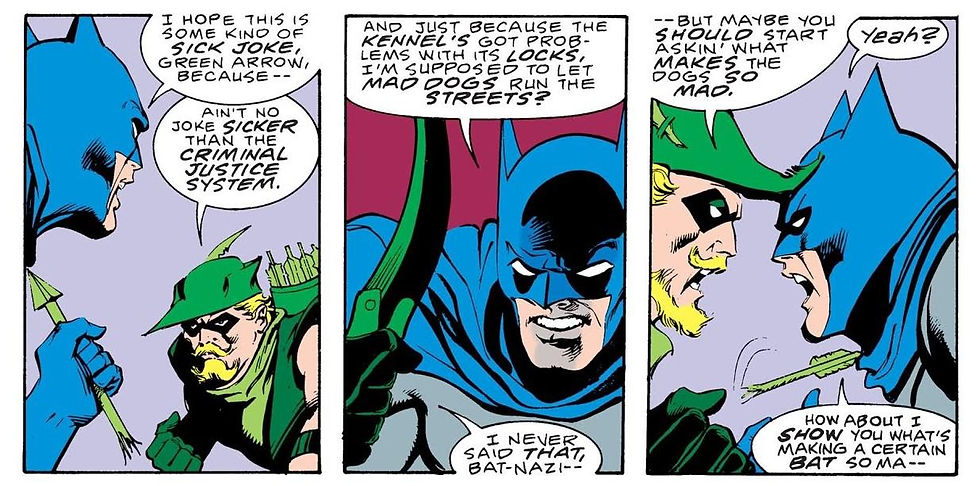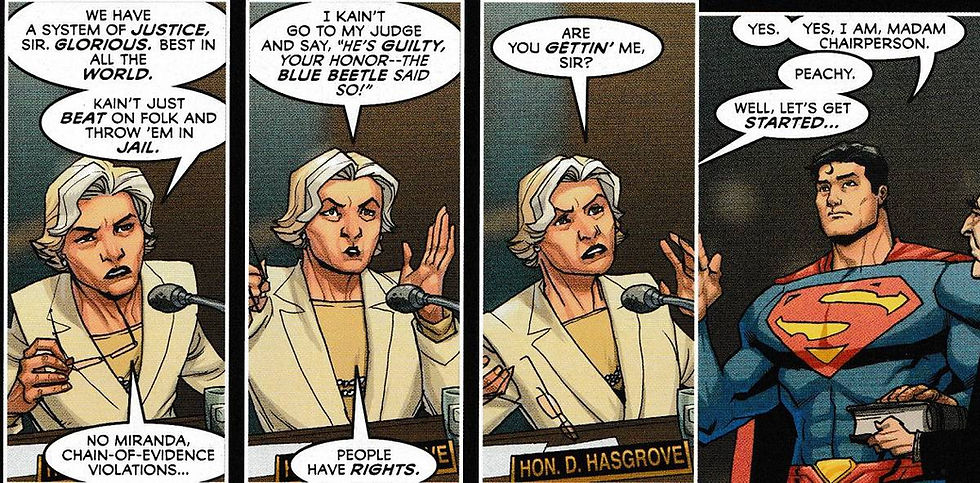Justice To Believe In
- Raven

- Jun 21, 2025
- 3 min read
Developing a firm sense of correct justice and procedure is something that RLSH strive to grasp. It's being able to make the correct choices out in the field that keep you legally in the clear.

Note: For this posts purpose, we're going to talk about crime and safety patrol RLSH primarily.
RLSH Are Not Vigilantes
RLSH and vigilantes are different. RLSH who are out on patrol are essentially looking for people to help in one way or another. This may mean defending themselves or another person or property from harm within reason. They are also willing to be friendly or cordial to the police. Vigilantes tend to ignore law enforcement to a certain degree and attempt to take matters in their own hands - which may violate a person(s) rights.
Let's examine some of the issues that RLSH may run into while out on patrol.
Protestors - People have the right to free speech and the right to assembly, protected by the first amendment in the Bill of Rights. You may agree or disagree with what their message is, but they have the right to express their ideas.
Riot - A riot is a violent public disorder by three or more persons that have assembled and are acting with a common intent. This is NOT protected by the first amendment and will end up with police involvement.
Weapons/Guns - People have the right to keep and bear arms, per the second amendment of the Bill of Rights. This doesn't mean that everyone with a gun is legal. People can open carry or carry concealed in a legal way, depending on your state laws. It also means that people can carry knives or swords or axes or whatever else, as long as they're not acting violently with them. When threats and acts of violence are taken, that person is essentially voiding their second amendment right. It usually ends up with police involvement either during and/or after.

Unlawful Entry - The third amendment protects people from having the government forcing their way into homes. This is why police can ask for entry, which is allowed, or they have to produce a warrant for entry, also allowed. Habeas corpus - the law has to have just cause.
Unlawful Search and Seizure - Pretty similar to what was just mentioned. The fourth amendment prevents the law from performing unlawful search and seizures of an individual or their private property. The exception here is if you have obvious items out in the open that creates a cause for concern. Habeas corpus - the law has to have just cause.
Due Process - Everyone has the right to due process, which is the fair and equal treatment of lawful proceedings. This means that you have the right to a trial (sixth and seventh amendments), you have a right to an attorney, you must be informed of the Miranda Rights if arrested, and you have a right to produce evidence for your case. Habeas corpus - the law has to have just cause. You also are protected from excessive bail, fines, and cruel and unusual punishment (eighth amendment).

Defending Yourself - You have the right to defend yourself against an attack. Self-defense is the use of reasonable force to protect oneself or others from harm. It's used in legal terms for imminent threats, reasonable fear of harm, and in proportionate force to the threat. It can also be used to protect property from theft or destruction. When your force exceeds the threat, it then becomes assault - which is not legal.
Assault - Assault is legally defined as "an intentional act that creates a reasonable apprehension of imminent harmful or offensive contact in another person". Assault is excessive force or force greater than is necessary.
Administering First Aid/CPR/AED - If the RLSH is trained, typically Red Cross certified minimum, then they can administer first aid, CPR, or AED if they have permission or if permission is implied. They will also remain with that person until someone can relieve them, whether that is another trained person or ambulance.
Citizen's Arrest - This is an arrest made by a private citizen instead of law enforcement. The citizen must have probable cause. Probable cause would be witnessing the crime or reasonable belief of a crime. Only reasonable force may be used to detain a suspect, as well as declaring that a citizen's arrest is being made. This doesn't apply to misdemeanors. If a citizen's arrest is made, then that person is responsible for calling the police and handing the suspect over to them. There will be paperwork and an interview made by the police. If you are wearing a bodycam, this can help cement your story.

For further discussions, please join the members-only forum. Leave questions and comments below.








Comments